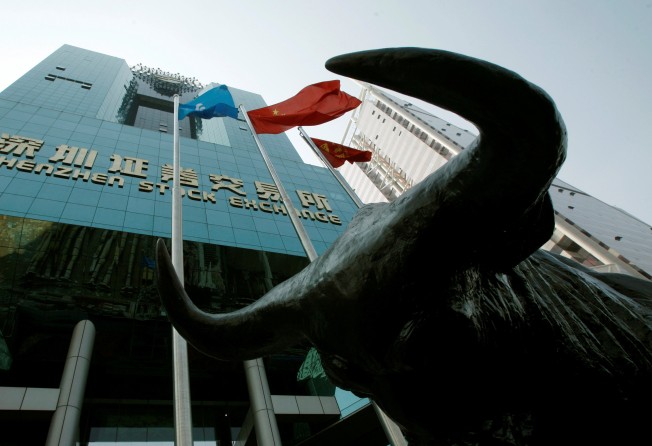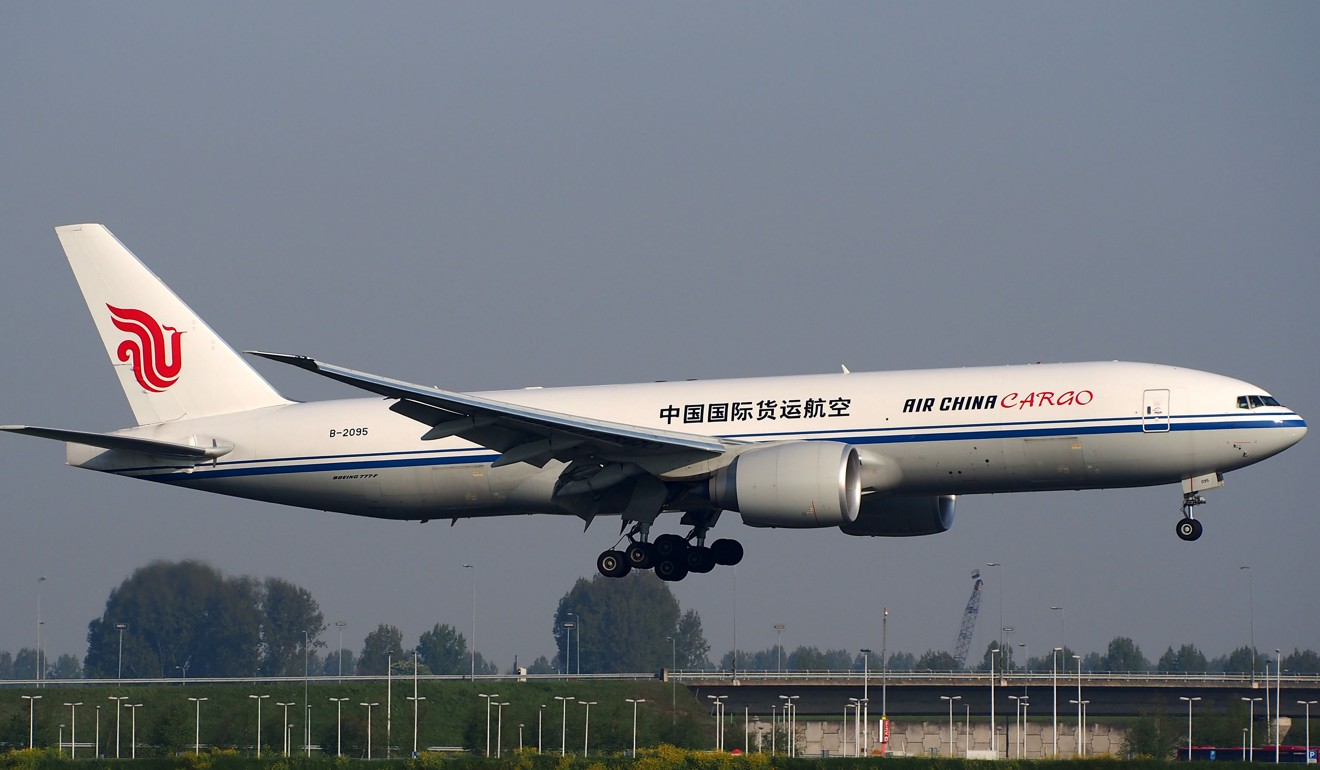Beijing’s financial crackdown puts Hong Kong shares way ahead of mainland peers
The Hang Seng Index is set to outperform the Shanghai Composite by the most since 2012 as mainland investors flee tough regulations

Hong Kong’s stock market is on course to beat its mainland counterpart by the largest margin in five years as Beijing’s regulatory crackdown aimed at cleaning up the financial industry drives a tide of southbound investment.
As mainland investors flee yuan-denominated equities amid heightened regulatory surveillance, they have been loading up on less pricey Hong Kong shares as an alternative, through the stock connect programmes that enable cross-border trading.
Boosted by the flow of capital from Chinese and overseas investors, the Hang Seng Index’s gain so far this year against the mainland’s stock benchmark is set to be the widest since 2012. Investors including HSBC Jintrust Fund Management say the outperformance is likely to persist throughout 2017, because of the valuation advantage and under-allocation by global investors.
“H shares will still hold the edge against A shares in the following half year,” said Cheng Yu, a fund manager with the Shanghai-based firm, who invests in the Hong Kong market via the exchange links. “We are relatively optimistic about the Hong Kong market. H shares will continue to benefit from the southbound investment from the mainland and global capital inflow.”
The Hang Seng Index has gained 14 per cent in 2017, while the Shanghai Composite has reversed earlier gains to retreat 1.4 per cent. Even as Hong Kong shares advance in value, they are still 15 per cent cheaper than the mainland equities, according to a gauge tracking the price gap between the two markets.

The performances of the two markets have diverged more since April after top policy makers introduced a raft of measures to clean up the financial sector. In a Politburo meeting, President Xi Jinping even elevated financial stability to the level of state security, calling for more cross-market regulatory co-ordination. The state news agency Xinhua then ran at least seven articles voicing support for Xi’s view.
The relevant regulators were quick to act. The central bank has refrained from injecting more funds into the financial system to cut commercial lenders’ leverage, the securities regulator pledged to be tougher on manipulation and the body overseeing the banking sector has clamped down on wealth management products that illegally invest in stocks and bonds.
The campaign has caused a liquidity squeeze in the capital markets, sending the Shanghai Composite plummeting from this year’s high on April 11, and the yield on 10-year government bonds to an almost two-year high.
As the Chinese government continues to tighten restrictions on the yuan’s free convertibility, the Hong Kong stock market has become a major avenue for mainland investors seeking havens for their assets, thanks to the two stock link schemes with the Shanghai and Shenzhen bourses.
Mainland investors have bought more Hong Kong shares than they have sold through the southbound investment channels every month since at least 2016, according to the exchanges’ data. As a result, their pricing power has been growing in the Hong Kong market. Trading through southbound investment now makes up 12 per cent of stock turnover in Hong Kong.
“The correction in A shares is actually driving Chinese investors into Hong Kong’s market and boosting southbound flows,” said Kingston Lin, chief executive officer of Ox Financial Securities.
Hong Kong shares will remain in favour with overseas investors even though they now have easier access to yuan-denominated stocks trading in the mainland, according to HSBC Jintrust’s Cheng.
“Global investors have qualms about the system of the domestic market, such as the rules on trading suspension and foreign exchanges,” he said. “So they are more inclined to invest in the offshore market.”
Hong Kong stocks accounted for 62 per cent of Cheng’s US$134 million fund by the end of the first quarter, with Tencent Holdings, China Mobile and New China Life Insurance among the top holdings.
Mainland stocks are actually more expensive than they initially look, according to many observers, as the bubble of small-caps has yet to burst. Though the average price-to-earnings ratio of all 3,175 companies on the Shanghai and Shenzhen bourses is about 35 times, more than two thirds of them trade above 50 times, according to Li Xunlei, chief economist at Zhongtai Securities.
The Hang Seng Index traded around a 21-month high, while the Shanghai Composite struggled at an almost seven-month low at 3,061.50 points on Thursday.
“Hong Kong continues to show value for portfolio allocation,” said Hong Hao, head of research at Bocom International Holdings, the Hong Kong brokerage unit of Bank of Communications. “For Shanghai, the index will be trading below 3,300 for two thirds of the time throughout the year.”